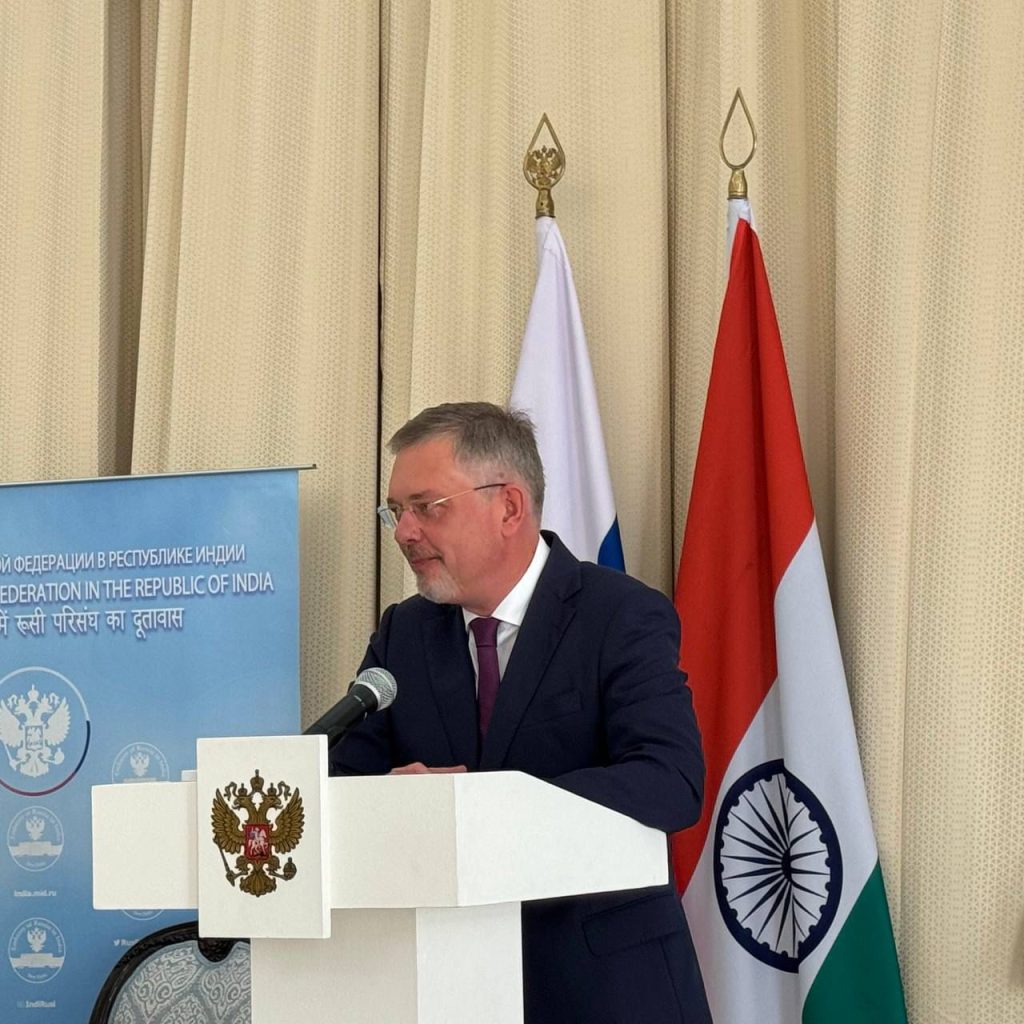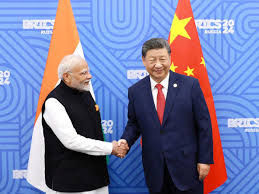
Voicing optimism about the recent thaw in India-China relations, Russian Ambassador to India Denis Alipov has underscored the significance of the breakthrough for regional stability and Eurasian security, Mr. Alipov stressed the importance of BRICS unity and clarified that the organization is not an anti-Western platform but rather a non-Western alliance focused on addressing global challenges. The Russian envoy described the meeting between Mr. Modi and Mr. Xi as “a positive development ” in Kazan on October 23, marking the first official dialogue between the two leaders in five years. ”
“We welcomed and are happy that the first meeting of India and China leaders after five years took place, ” Mr Alipov stated. He emphasized that resolving border issues and fostering cooperation between the two nations would greatly benefit not only the two countries but also the broader Eurasian region. ” This is a positive development for both regional security and the economic landscape, Mr. Alipov remarked.
While Russia did not facilitate the meeting, Mr. Alipov expressed strong support for the improvement in India-China relations, noting that it aligns with Russia’s own interests in Eurasian stability. It is important and desirable that India and China maintain stable and good relations. This is favourable for Eurasian security and beneficial for the world at large, he added.

BRICS: A Non-Western Platform
Mr. Alipov also took the opportunity to discuss the broader significance of the BRICS summit in Kazan, highlighting the role of the organization in promoting global cooperation. Contrary to some characterizations, Mr. Alipov clarified that BRICS is not an anti-Western alliance but rather a non-Western platform that seeks to represent emerging economies. BRICS is not anti-West but non-West, he stressed, indicating that the organization serves as a counterbalance to Western-dominated global institutions. He pointed out that over 40 countries have expressed interest in joining BRICS, further demonstrating the bloc’s growing influence. ”
A key outcome of the Kazan summit was the creation of a new category of BRICS partner states, which will allow more countries to engage with BRICS initiatives.” this, Alipov said, would help multiply value and diversify partnerships, thereby strengthening the bloc’s global reach. One of the major initiatives discussed at the summit was the development of a BRICS cross-border payment system, along with expanded currency arrangements.
These measures are designed to reduce reliance on Western financial systems and provide BRICS nations with tools to manage short- term current account deficits. Mr. Alipov noted that the summit achievements underscore the growing global strength of BRICS, which now accounts for 40% of global oil production and 30% of the world land area. Mr. Alipov also responded to recent criticisms of the BRICS summit, particularly comments made by Ukrainian President Volodymyr Zelenskyy, who labelled the event a failure. Mr. Alipov dismissed these remarks, calling Zelenskyy delusional and pointing out that the BRICS summit had been a major success in terms of participation and outcomes. I just read Zelenskyy interview with the Times of India where he called the BRICS summit a complete failure. Frankly, Ukraine president is completely delusional, he said.
The ambassador then turned to the issue of sanctions, warning that the U.S. unilateral sanctions against Russia could soon target other BRICS nations. Right before the BRICS summit, the U.S. announced new unilateral sanctions against Russia. Today it is Russia; tomorrow it could be China, and possibly even India, Alipov cautioned. He stressed the importance of BRICS unity in the face of such external pressures and reiterated that BRICS aims for global reform rather than targeting any specific country. Mr Alipov emphasized the importance of BRICS as a platform for cooperation on a wide range of issues, from economic development to regional security. ;BRICS as a platform offers opportunities for our time, from global crises to regional issues, he stated, highlighting the bloc’s growing economic and geopolitical influence.
Author Profile
- India Writes Network (www.indiawrites.org) is an emerging think tank and a media-publishing company focused on international affairs & the India Story. Centre for Global India Insights is the research arm of India Writes Network. To subscribe to India and the World, write to editor@indiawrites.org. A venture of TGII Media Private Limited, a leading media, publishing and consultancy company, IWN has carved a niche for balanced and exhaustive reporting and analysis of international affairs. Eminent personalities, politicians, diplomats, authors, strategy gurus and news-makers have contributed to India Writes Network, as also “India and the World,” a magazine focused on global affairs.
Latest entries
 DiplomacyJanuary 5, 2026India walks diplomatic tightrope over US operation in Venezuela
DiplomacyJanuary 5, 2026India walks diplomatic tightrope over US operation in Venezuela India and the WorldNovember 26, 2025G20@20: Africa’s Moment – The Once and Future World Order
India and the WorldNovember 26, 2025G20@20: Africa’s Moment – The Once and Future World Order DiplomacyOctober 4, 2025UNGA Resolution 2758 Must Not Be Distorted, One-China Principle Brooks No Challenge
DiplomacyOctober 4, 2025UNGA Resolution 2758 Must Not Be Distorted, One-China Principle Brooks No Challenge India and the WorldJuly 26, 2025MPs, diplomats laud Operation Sindoor, call for national unity to combat Pakistan-sponsored terror
India and the WorldJuly 26, 2025MPs, diplomats laud Operation Sindoor, call for national unity to combat Pakistan-sponsored terror






